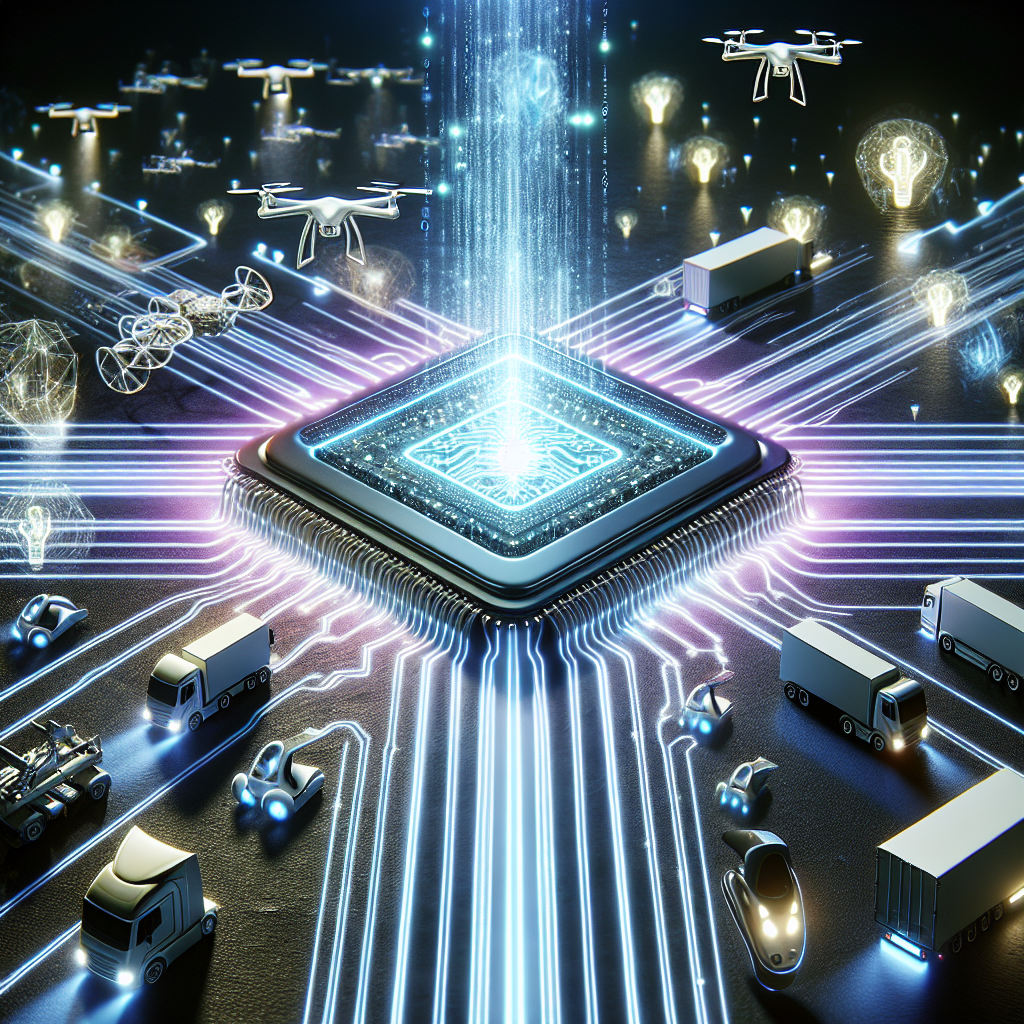Transportation is a crucial aspect of our daily lives, whether we are commuting to work, shipping goods across the country, or traveling for leisure. The efficiency of transportation systems directly impacts our productivity, economy, and overall quality of life. With the rapid advancements in artificial intelligence (AI) technology, there are now innovative solutions that can significantly improve efficiency in transportation.
AI-driven solutions in transportation leverage data analytics, machine learning, and automation to streamline operations, optimize routes, reduce costs, and enhance safety. From autonomous vehicles to predictive maintenance and smart traffic management, AI is transforming the way we move people and goods from point A to point B. In this article, we will explore the benefits of AI-driven solutions in transportation and how they can help improve efficiency across various modes of transportation.
Benefits of AI-driven Solutions in Transportation
1. Improved Safety: One of the key benefits of AI-driven solutions in transportation is enhanced safety. AI-powered systems can analyze real-time data from sensors, cameras, and other sources to detect potential hazards, predict accidents, and alert drivers or operators to take preventive measures. For example, autonomous vehicles use AI algorithms to navigate traffic, avoid collisions, and make split-second decisions to ensure the safety of passengers and pedestrians.
2. Optimal Route Planning: AI algorithms can analyze historical traffic data, weather conditions, and other variables to optimize route planning for vehicles. By identifying the most efficient routes, drivers can avoid congestion, reduce fuel consumption, and reach their destinations faster. This not only saves time and money but also reduces carbon emissions and improves air quality in urban areas.
3. Predictive Maintenance: AI-driven solutions can monitor the health of vehicles and infrastructure in real-time, detecting potential issues before they lead to breakdowns or accidents. By analyzing data from sensors and maintenance records, AI algorithms can predict when parts need to be replaced, schedule maintenance tasks proactively, and prevent costly downtime. This proactive approach to maintenance can extend the lifespan of vehicles and reduce operating costs for transportation companies.
4. Smart Traffic Management: AI-powered traffic management systems can optimize signal timings, adjust speed limits, and reroute vehicles in real-time to reduce congestion and improve traffic flow. By coordinating traffic signals, monitoring vehicle speeds, and predicting traffic patterns, AI algorithms can minimize delays, enhance mobility, and increase the overall efficiency of transportation networks. This is especially beneficial in urban areas where traffic congestion is a major challenge.
5. Enhanced Customer Experience: AI-driven solutions can personalize services, provide real-time updates, and offer convenient booking options to improve the customer experience in transportation. For example, ride-sharing platforms use AI algorithms to match passengers with drivers, estimate arrival times, and optimize pricing based on demand. By leveraging AI technology, transportation companies can offer more efficient and convenient services that meet the needs and expectations of their customers.
FAQs about AI-driven Solutions in Transportation
Q: How can AI improve efficiency in public transportation?
A: AI-powered solutions can help public transportation agencies optimize routes, schedule maintenance, and manage demand to improve efficiency. By analyzing data from sensors, cameras, and passenger feedback, AI algorithms can identify areas for improvement, reduce operating costs, and enhance the overall quality of service.
Q: Are autonomous vehicles safe for transportation?
A: Autonomous vehicles are equipped with advanced AI technology that enables them to navigate roads, detect obstacles, and make decisions in real-time. While there are still challenges to overcome, such as regulatory issues and public acceptance, autonomous vehicles have the potential to improve safety, reduce accidents, and increase efficiency in transportation.
Q: How can AI benefit freight transportation?
A: AI-driven solutions can optimize freight transportation by analyzing shipping routes, managing inventory, and predicting demand. By using AI algorithms to streamline logistics operations, companies can reduce shipping costs, minimize delays, and improve customer satisfaction. AI can also help track shipments, monitor cargo conditions, and ensure timely deliveries.
Q: What are the challenges of implementing AI in transportation?
A: Some of the challenges of implementing AI in transportation include data privacy concerns, cybersecurity risks, regulatory barriers, and infrastructure limitations. Transportation companies must also invest in training employees, upgrading systems, and integrating AI technology into their operations. Despite these challenges, the benefits of AI-driven solutions in transportation outweigh the costs and risks.
In conclusion, AI-driven solutions are revolutionizing the transportation industry by improving safety, optimizing routes, reducing costs, and enhancing the overall efficiency of transportation systems. From autonomous vehicles to predictive maintenance and smart traffic management, AI technology is transforming the way we move people and goods across the globe. By leveraging AI algorithms, transportation companies can increase productivity, reduce environmental impact, and provide better services to their customers. As AI continues to evolve and mature, we can expect even more innovative solutions that will shape the future of transportation for years to come.

